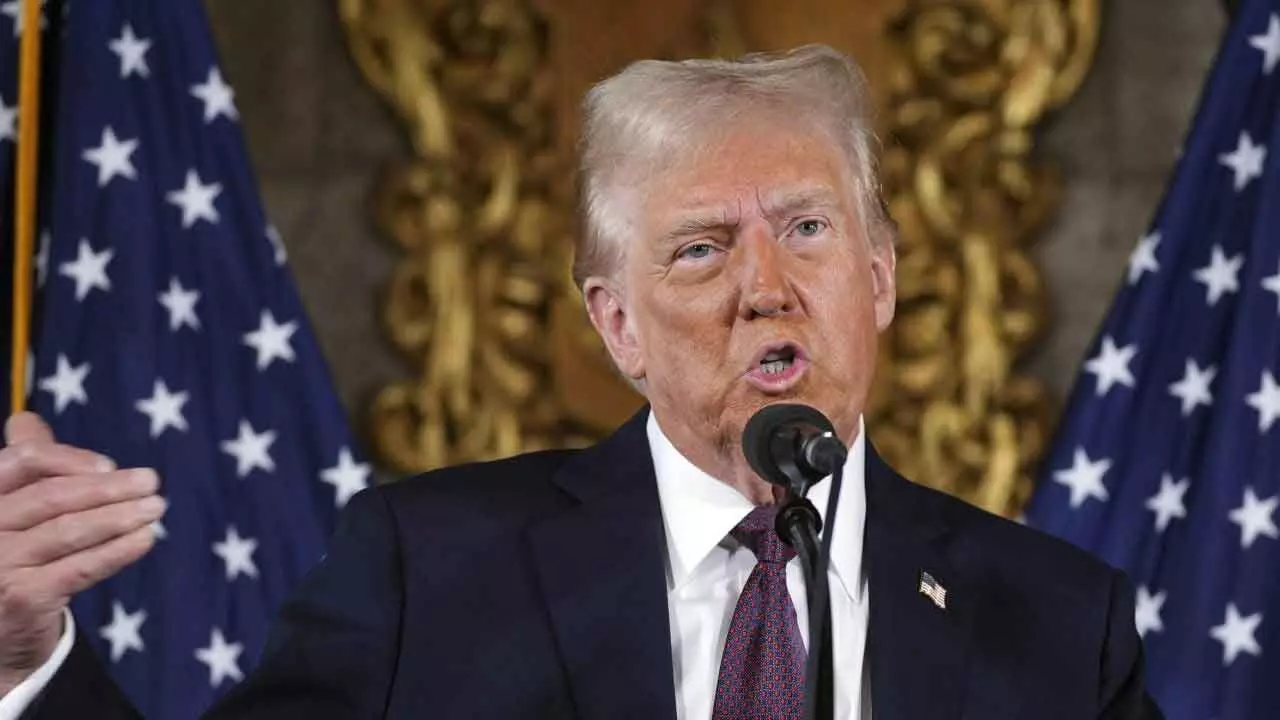Trump Withdraws U.S. from WHO, Orders Tariffs on Canada, Mexico
Donald Trump begins his presidency with executive orders reversing Biden-era policies, including AI, trade tariffs, and electric vehicle mandates.
image for illustrative purpose

Donald Trump, upon resuming office as the President of the United States, initiated his tenure by issuing a series of executive orders that set the tone for his administration. Within hours of taking the oath of office, Trump signed multiple directives, signaling a shift in policy direction from the previous administration.
In a symbolic gesture, Trump threw his pen into the crowd after signing his first eight orders, reflecting his characteristic approach to public engagement. Among his initial actions was the reversal of 78 executive orders implemented by former President Joe Biden.
Key areas of focus in Trump’s directives include a renewed emphasis on withdrawing from international agreements, such as the Paris Climate Accord, and reinforcing domestic policies on freedom of speech and cost-of-living concerns. Government agencies were instructed to prioritize these issues, and federal employees were directed to return to in-office duties.
Trump announced plans to impose a 25 per cent tariff on imports from Canada and Mexico starting February 1, marking a significant move in trade policy.
The United States officially exited the World Health Organization (WHO) under Trump’s orders. Citing dissatisfaction with the organization’s handling of the COVID-19 pandemic, Trump highlighted accountability as a driving factor behind this decision.
Trump overturned Biden-era restrictions on the development and testing of artificial intelligence. The previous administration had implemented measures to limit AI expansion, which Trump’s administration has now removed, signaling a broader push for technological innovation.
Trump also reversed Biden’s policy of selling materials intended for border wall construction. These materials, which had been auctioned in various states, will no longer be available for sale, reflecting Trump’s renewed focus on border security.
The Chinese-owned social media platform TikTok has been given 75 days to sell its U.S. operations. Trump has stated that at least 50 per cent ownership of the app should remain with U.S.-based entities. The initial deadline for the sale was January 19, but the timeline has been extended under the new directive.
Trump’s administration has ordered the Department of Justice and the Office of the Director of National Intelligence to investigate alleged restrictions on free speech during Biden’s tenure. This move underscores Trump’s focus on what he describes as protecting constitutional freedoms.
In a move that affects the electric vehicle industry, Trump overturned Biden’s mandate requiring 50 per cent of new cars sold by 2030 to be electric. This decision has implications for automakers, including Tesla, and signals a shift in federal priorities regarding renewable energy and transportation.

